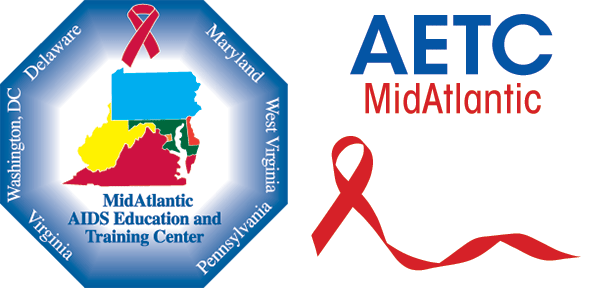This virtual series was created in collaboration with the MidAtlantic AETC Ending the HIV Epidemic (EHE) Workgroup. This comprehensive webinar series aims to provide healthcare professionals with the latest strategies and tools to end the HIV epidemic. Each training session will focus on one of the four key strategies that make up the Ending the HIV Epidemic U.S. Initiative, which include: diagnosing all individuals with HIV as early as possible, treating HIV rapidly and effectively to achieve sustained viral suppression, preventing new HIV transmissions using proven interventions like PrEP, and responding quickly to potential HIV outbreaks to get needed prevention and treatment services to those who need them.
For more information on this series, visit: https://www.maaetc.org/p/ehemaaetc
DESCRIPTION:
This program will address the elements of the key strategy: Respond.
Speaker:
Bryan E. Price, BA
Principal and Founder, GTP Wellness Consulting, L.L.C.
Outreach and Engagement Specialist, University of Virginia Cancer Center
Objectives:
Upon completion of this course, participants will be able to:
- Define health inequity and its impact on HIV disparities in different communities.
- Discuss barriers faced by diverse populations in accessing HIV care and prevention services.
- Review how social determinants of health, unconscious bias, and stigma impact client engagement and retention in HIV care and prevention services.
- Explore interventions and strategies for advancing and promoting health equity within communities, systems of care, and clinics.
Speaker
Accreditation
Formal accreditation is not offered for this program. However, a certificate of attendance will be sent to all participants who complete the post-event evaluation.
Acknowledgement:
The MidAtlantic AIDS Education and Training Center (MAAETC) is supported by DHHS, Health Resources and Services Administration (HRSA) as part of a cooperative agreement of $2,917,621 and 0% financed with non-governmental sources. Additional funding provided by the Pennsylvania Department of Health (PA DOH), Bureau of Communicable Diseases, Division of HIV Disease. The views expressed do not necessarily reflect the official policies of the Department of Health and Human Services nor does mention of trade names, commercial practices, or organizations imply endorsement by the U.S. Government. Any trade names for products mentioned are for training and identification purposes only. The contents of this material are those of the author(s) and do not necessarily represent the official views of, nor an endorsement, by HRSA, HHS, or the U.S. Government. Funding was made possible in part by TR7HA53201-01-00 from the HRSA, HIV/AIDS Bureau. For more information, please visit HRSA.gov.

